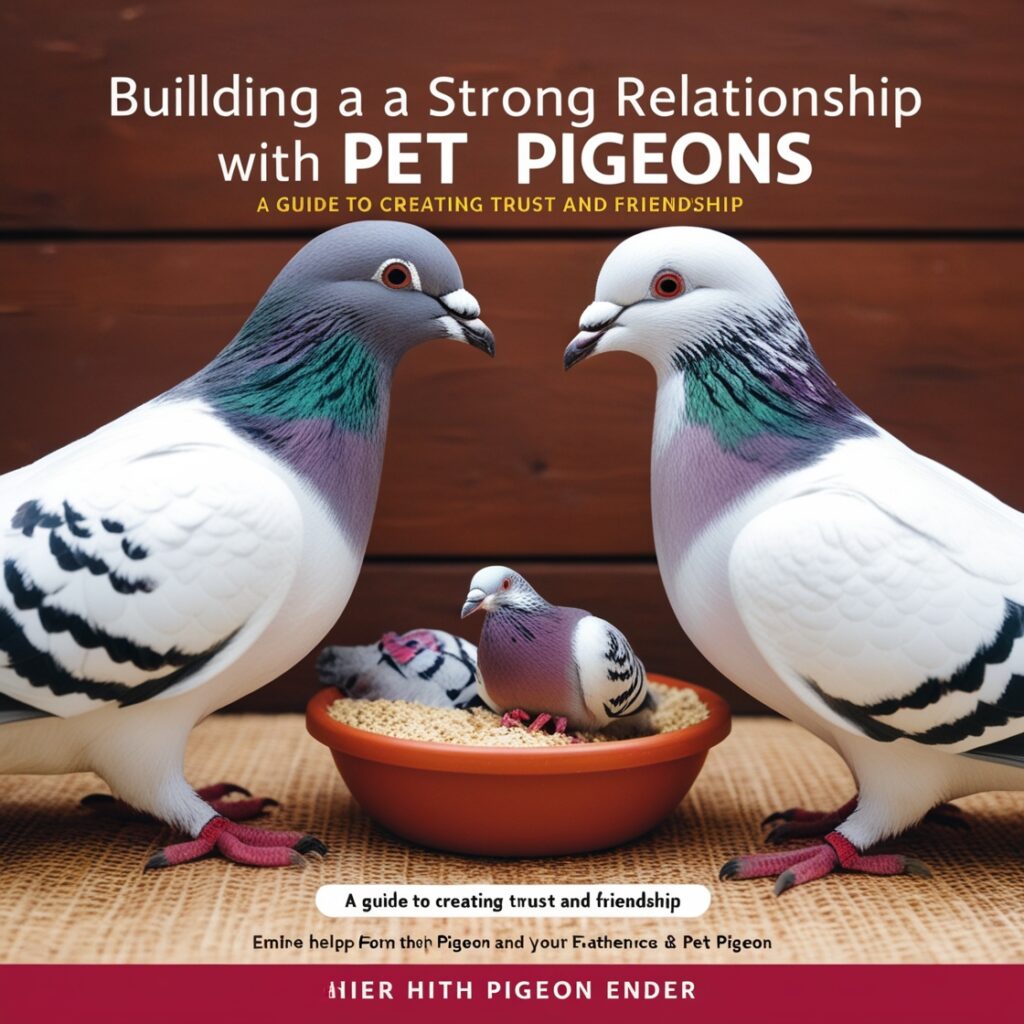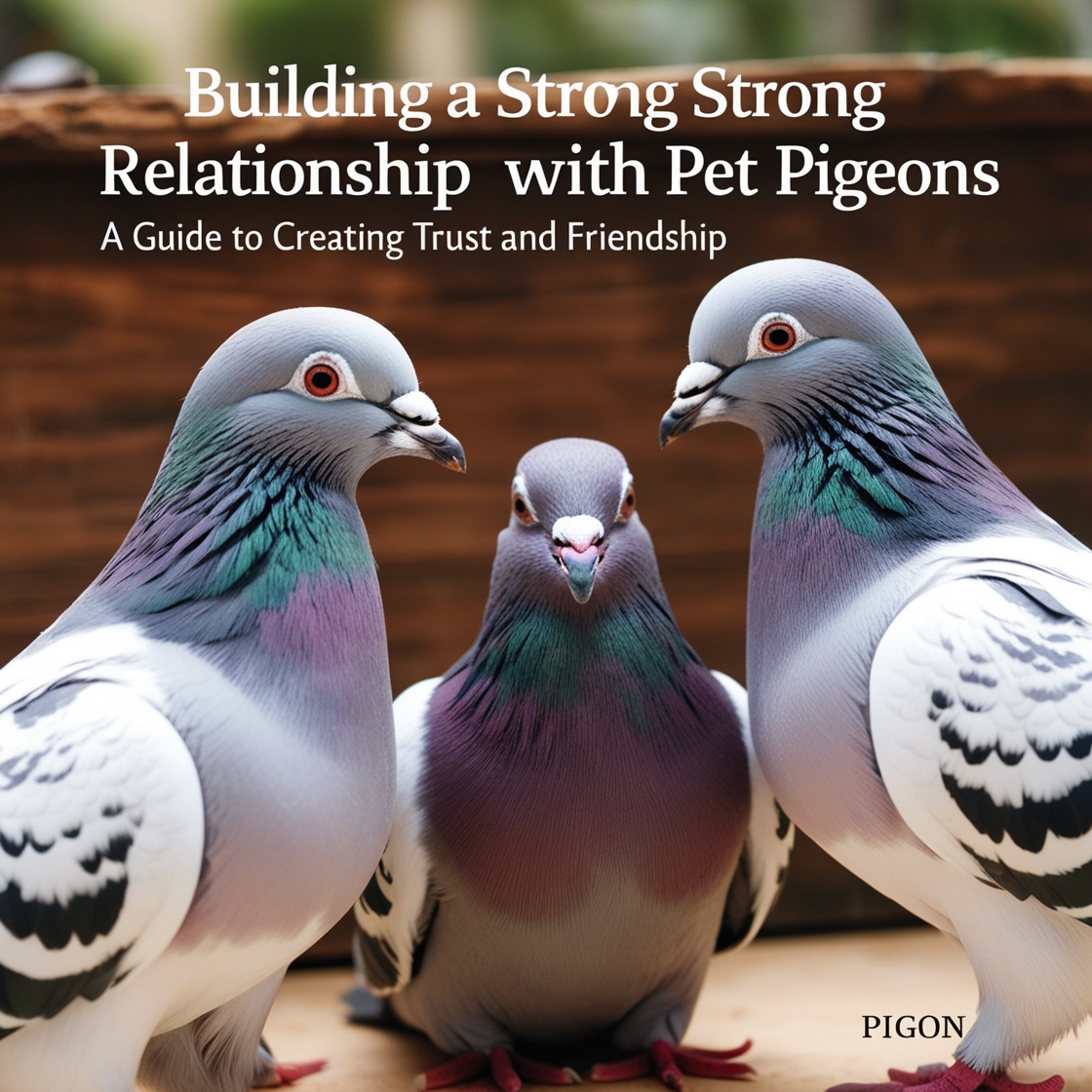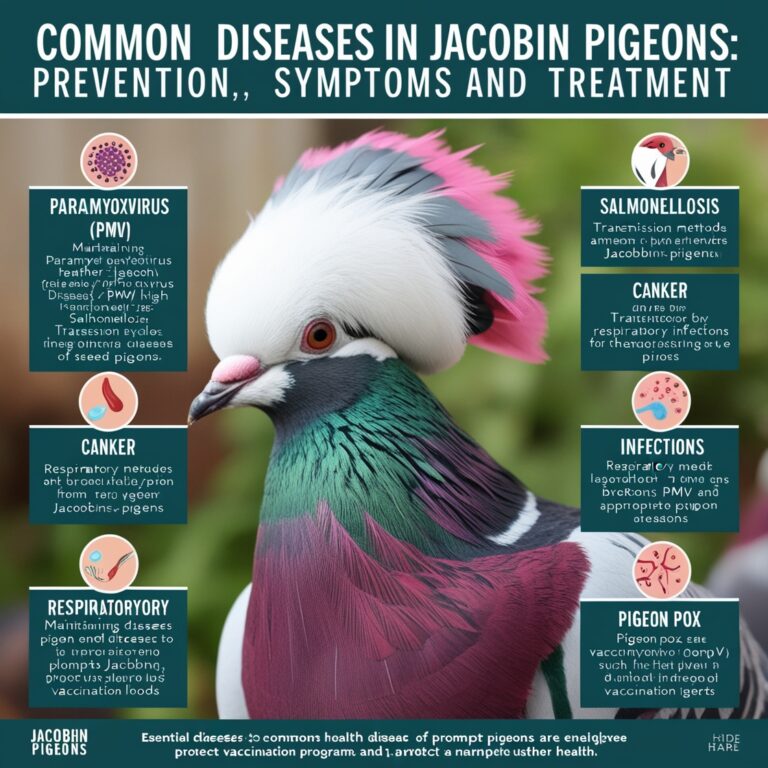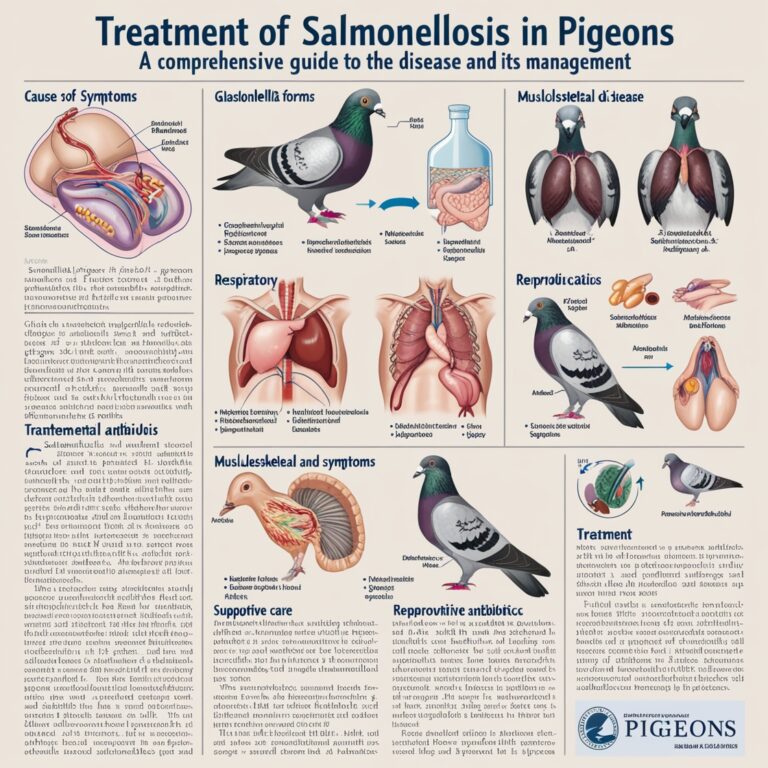Building a Strong Relationship with Pet Pigeons
Building a Strong Relationship with Pet Pigeons: A Guide to Creating Trust and Friendship
Understanding Pigeon Behavior
Before you can effectively bond with your pigeons, it’s important to understand their natural behaviors and instincts. Pigeons are inherently social creatures that thrive in flocks, relying on social interactions for their well-being. Recognizing these behaviors is essential for fostering a deeper connection with your birds.
1.1 Social Birds
Pigeons are naturally sociable with their own species and can also develop strong bonds with humans. They form tight-knit relationships with their flock mates, and once a bond is established, they can extend that trust and loyalty to their human caretakers.
1.2 Body Language and Communication
Pigeons primarily communicate through body language. Key signals to observe include:
- Cooing: A sign of contentment or a request for attention.
- Puffed Feathers: Often indicates relaxation; however, it can also suggest they are trying to keep warm or may not be feeling well.
- Tail Wagging: Generally a sign of excitement or happiness.
By understanding these behaviors, you’ll be better equipped to interact with your pigeons and respond to their needs effectively.
Creating a Safe and Comfortable Environment
A safe and comfortable environment is crucial for helping your pigeons feel secure, ultimately leading to trust and bonding.
2.1 Housing
Whether housed indoors or outdoors, your pigeons’ living space should be spacious, clean, and secure. Include perches and sheltered areas to provide privacy and opportunities for rest.
2.2 Cleanliness and Hygiene
Maintaining cleanliness is essential for the health and comfort of your pigeons. Regularly clean the cage or loft and replace bedding to prevent the spread of diseases. This routine contributes significantly to your pigeons’ well-being.
2.3 Establishing a Routine
Pigeons thrive on consistency. Establish a daily routine that includes feeding and interaction. A regular schedule helps them feel secure and aids in forming a stronger bond.
Proper Care and Nutrition
Providing proper care is fundamental to building trust with your pigeons. A balanced diet, clean water, and attention to their health ensure they feel secure and well cared for.
3.1 Balanced Diet
Offer a variety of seeds, grains, and fresh greens, along with necessary supplements like grit and calcium. Hand-feeding healthy treats can create positive associations with you.
3.2 Health and Grooming
Regular health checks and good hygiene practices are vital. Healthy pigeons are more likely to trust and engage with their caregivers, enhancing your bond.
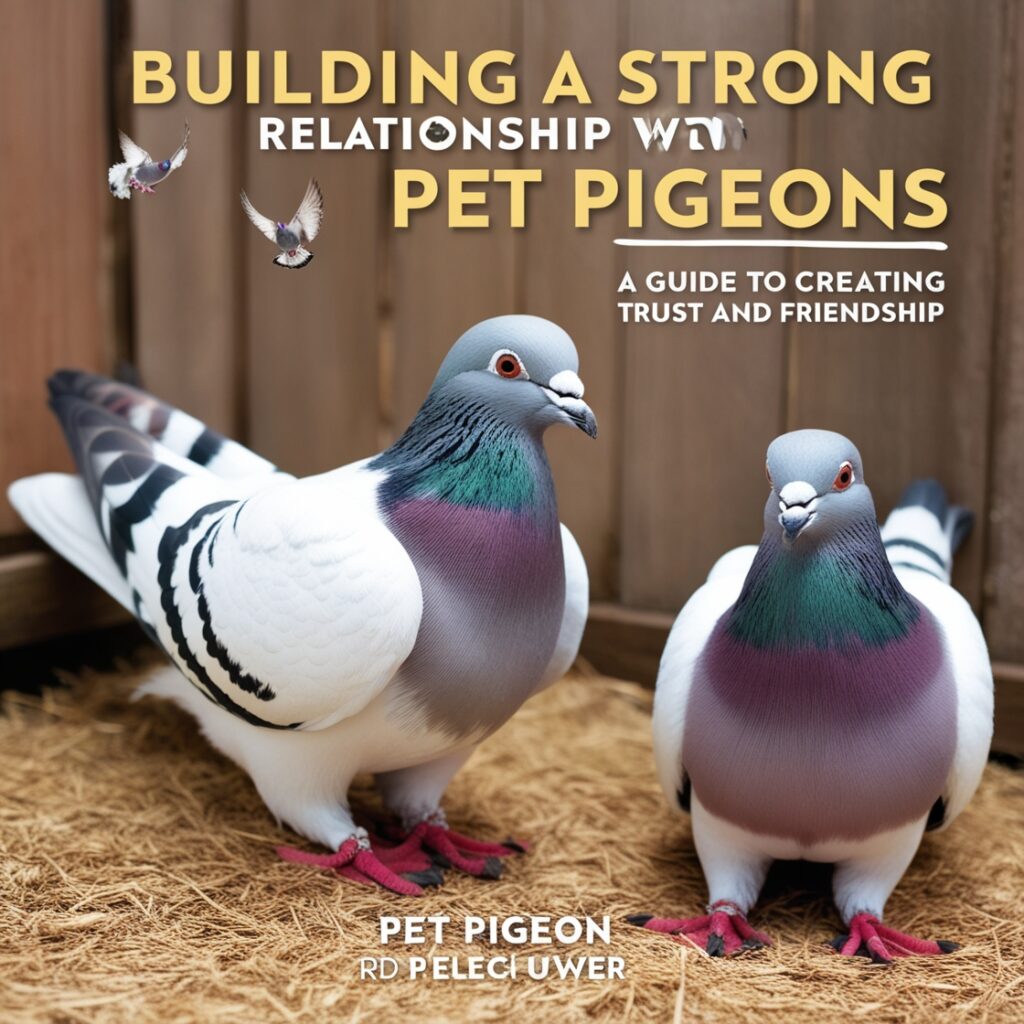
Building Trust and Bonding Over Time
Building trust with your pigeons is a gradual process that requires patience and consistency.
4.1 Hand-Feeding and Treats
Hand-feeding treats is an excellent method for building trust. Start slowly, allowing your pigeons to approach you at their own pace, and avoid sudden movements that might startle them.
4.2 Gentle Interaction and Handling
Once trust is established, you can begin gentle handling. Respect your pigeons’ comfort levels and avoid forcing interactions. Positive reinforcement will help deepen your bond.
4.3 Spending Quality Time
Spending quiet time near your pigeons without pressuring them for interaction allows them to get used to your presence. This familiarity is vital for building trust over time.
.
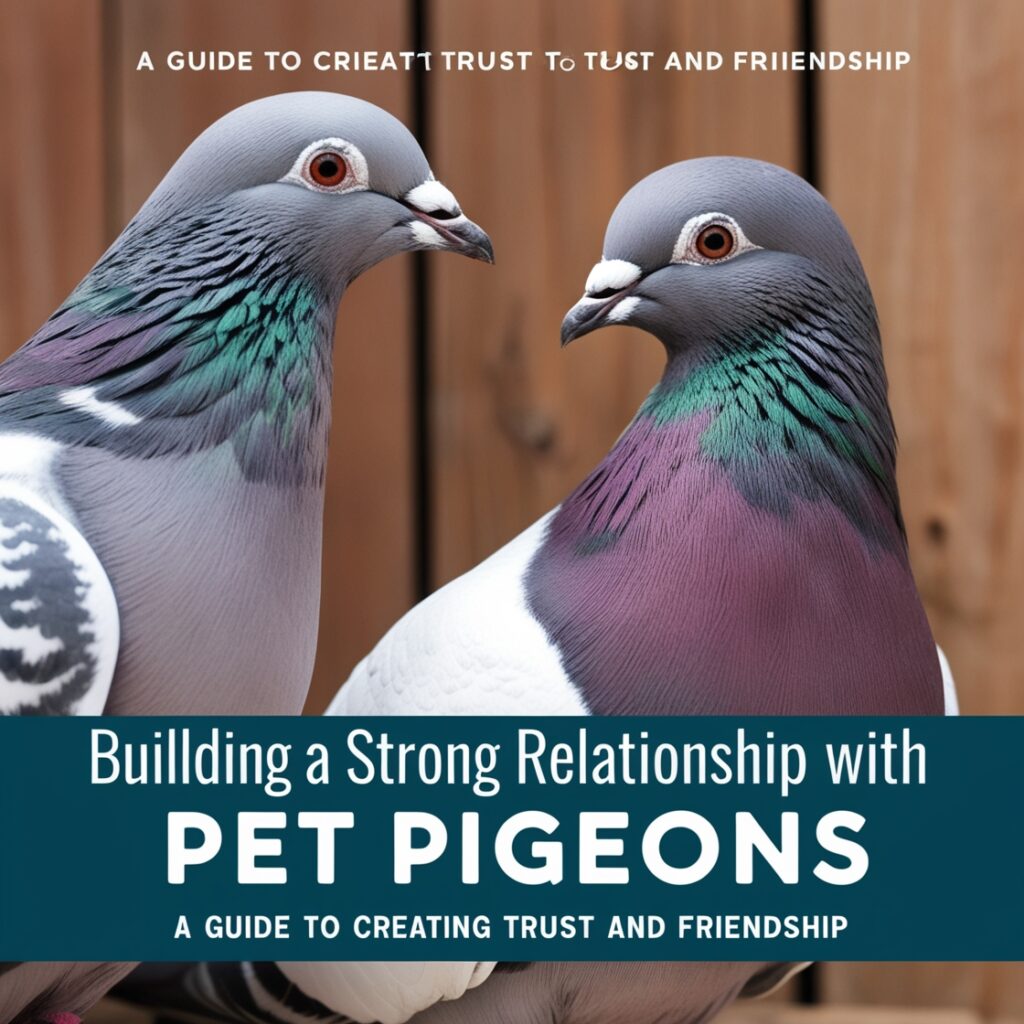
Building Trust and Friendship with Your Pigeon
Pigeons, with their gentle nature and intelligence, can become loyal and affectionate companions when trust and friendship are developed. Building a bond with your pigeon takes time, patience, and a good understanding of their behavior and needs.
Understanding Body Language
Pigeons communicate through subtle body language such as cooing, tail-wagging, and puffing up their feathers. Cooing is often a sign of contentment or a call for attention. Tail-wagging usually indicates excitement or happiness, while puffed feathers can show relaxation or warmth, though it may also signal illness. Recognizing these signals allows you to respond better to your pigeon’s needs, helping to strengthen your connection.
Creating a Safe Environment
A secure and comfortable environment is essential for developing trust. Whether your pigeon lives indoors or outdoors, ensure they have a clean, spacious, and predator-proof living area. Regular cleaning and providing fresh food and water contribute to their health and comfort. Establishing a consistent care routine, including maintaining feeding schedules, reassures pigeons and helps them feel safe and secure.
Establishing Routine and Interaction
Pigeons thrive on routine. Consistent feeding times, gentle handling, and daily interaction make them familiar with your presence. Allowing them to exercise outside their cage in a safe space promotes mental stimulation. Hand-feeding treats, speaking softly, and spending time nearby encourage your pigeon to trust you.
A secure and comfortable environment is essential for developing trust with your pigeons. Whether your birds are housed indoors or outdoors, it’s crucial to provide a clean, spacious, and predator-proof living area. Regular cleaning and ensuring access to fresh food and water significantly contribute to their health and overall comfort. Additionally, establishing a consistent care routine, including maintaining feeding schedules, reassures your pigeons and helps them feel safe and secure.
Pigeons thrive on routine. Consistent feeding times, gentle handling, and daily interaction help them become familiar with your presence. Allowing them to exercise outside their cage in a safe space promotes mental stimulation and physical well-being. Hand-feeding treats, speaking softly, and spending time nearby will encourage your pigeon to trust you, ultimately strengthening your bond. By creating a nurturing environment and fostering consistent interaction, you’ll pave the way for a lasting friendship with your feathered companion.
